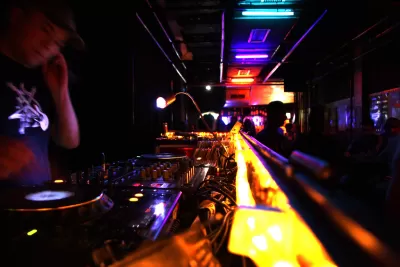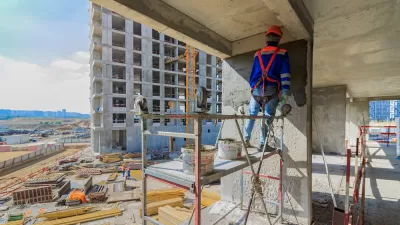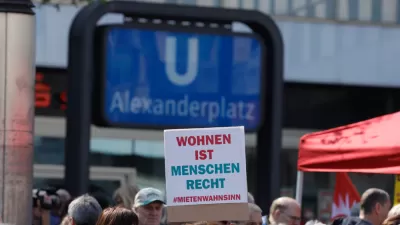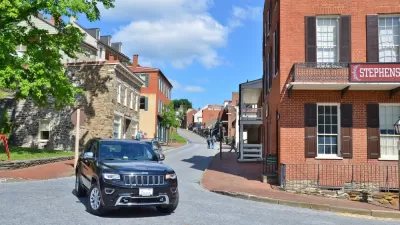As Berlin's neighborhoods continue to gentrify, the buildings that once housed the city's bustling underground club culture are being redeveloped.

Following the end of the Cold War, the buildings left abandoned across Berlin slowly found new life as part of the city’s techno scene, housing clubs that attracted clubgoers from across Europe. Now, as the city’s gentrification is quickly gobbling up these buildings for new uses, the techno scene which has long been apart of Berlin’s culture is under threat.
Writing in CityMetric, John Schofield finds that the underground, or hidden, nature of the club scene has posed a challenge for those seeking to preserve it.
This significant history is also hidden from those responsible for managing the city’s future – its planners and politicians. How can they promote or understand the significance of something they will probably never see?
Underground heritage remains an important ingredient in Berlin’s cultural landscape, but it is under threat as the city continues to reinvent itself as a modern European capital.
FULL STORY: Gentrification is killing Berlin's techno scene

Maui's Vacation Rental Debate Turns Ugly
Verbal attacks, misinformation campaigns and fistfights plague a high-stakes debate to convert thousands of vacation rentals into long-term housing.

Planetizen Federal Action Tracker
A weekly monitor of how Trump’s orders and actions are impacting planners and planning in America.

San Francisco Suspends Traffic Calming Amidst Record Deaths
Citing “a challenging fiscal landscape,” the city will cease the program on the heels of 42 traffic deaths, including 24 pedestrians.

Defunct Pittsburgh Power Plant to Become Residential Tower
A decommissioned steam heat plant will be redeveloped into almost 100 affordable housing units.

Trump Prompts Restructuring of Transportation Research Board in “Unprecedented Overreach”
The TRB has eliminated more than half of its committees including those focused on climate, equity, and cities.

Amtrak Rolls Out New Orleans to Alabama “Mardi Gras” Train
The new service will operate morning and evening departures between Mobile and New Orleans.
Urban Design for Planners 1: Software Tools
This six-course series explores essential urban design concepts using open source software and equips planners with the tools they need to participate fully in the urban design process.
Planning for Universal Design
Learn the tools for implementing Universal Design in planning regulations.
Heyer Gruel & Associates PA
JM Goldson LLC
Custer County Colorado
City of Camden Redevelopment Agency
City of Astoria
Transportation Research & Education Center (TREC) at Portland State University
Jefferson Parish Government
Camden Redevelopment Agency
City of Claremont





























